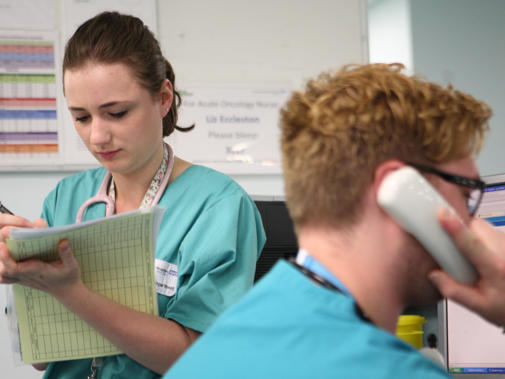Trainees across the UK will be able to cite training from a former specialty when seeking their certificate of completion of training – a qualification that grants access to the GMC’s specialist register and the ability to apply for NHS consultant posts – new guidance published by the Academy of Medical Royal Colleges has confirmed.
The decision means doctors who decide to change their specialties during training will no longer have to repeat training for competency signs-offs they have already gained, thereby avoiding unnecessary delays to their career progression.
Those junior doctors that do wish to transfer specialties must still ensure that they are meeting statutory minimum training time for the specialty they are transferring into, though not all specialty programmes have these limits.
The introduction of the new guidelines represents the successful culmination of several years of lobbying, with calls for increased flexibility in training a – key demand issued by the BMA during negotiations following the 2016 junior doctor contract dispute.
Career paths
 HALLETT: 'Increased flexibility has benefits for doctors and patients'
HALLETT: 'Increased flexibility has benefits for doctors and patients'
BMA junior doctors committee chair Sarah Hallett said the agreed guidelines meant junior doctors would be able to pursue their careers while facing fewer restrictions and receive recognition for all training they had undertaken.
Welcoming the guidance, she said: ‘This was a key part of the ACAS agreement between the BMA and NHS Employers following the 2016 junior doctor contract dispute, and much work has been undertaken by many organisations to bring this to fruition.
‘Increased flexibility has benefits for doctors and their patients. Many junior doctors change their minds about their specialty or develop different interests and priorities throughout their training which can often lead to a change in training programme.
‘The accreditation of previous training upon entering a specialty ensures training is appropriately recognised, and these competencies don't need to be repeated which not only respects the prior knowledge of the junior doctor but also personalises and streamlines their training experience. It also encourages retention of these doctors in the workforce, and ensures they are able to progress through their training in a manner that recognises their experience. This is ultimately good news for doctors and great news for the NHS which has a more flexible workforce in training.’
Learning remap
Publication of the guidance dovetailed with the redesign of all medical curricula to ensure that the different competencies and requirements of each could be shared across the postgraduate curricula, where appropriate.
Ensuring guidance meets all relevant requirements while also benefiting trainees necessitated considerable close working between medical royal colleges and the GMC, with the BMA supporting the process throughout.
Dr Hallett said having a more flexible approach to training was long overdue with many juniors no longer opting for linear career paths and placing greater priority on establishing a healthy work and life balance.
She added it was essential those doctors choosing to re-enter training after working in staff, associate specialist or specialty doctor roles receive the same recognition of their skills and experience through the framework.

